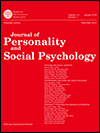The effects of different surgical approaches on the psychological status, medical coping mode and quality of life of patients with lung cancer
ObjectiveThis study aimed to compare the effects of robot-assisted thoracic surgery (RATS), video-assisted thoracic surgery (VATS), and thoracotomy on the psychological status, medical coping mode, and quality of life of patients with lung cancer.MethodsA total of 158 patients with lung cancer were selected from the thoracic surgery center of a third-grade hospital in Hunan Province, China, from September to November 2020. The Self-Rating Anxiety Scale (SAS), Self-Rating Depression Scale (SDS), Medical Coping Modes Questionnaire (MCMQ), and Medical Outcomes Study (MOS) 36-item Short Form Health Survey (SF-36) were used to assess the effects of the surgical approaches on the study parameters before and 48–96 h after surgery. The t-test and analysis of variance were used to analyze the data.ResultsThe results revealed that the patients’ depression increased, their short-term quality of life decreased, and they tended to adopt a positive coping mode after surgery (p



